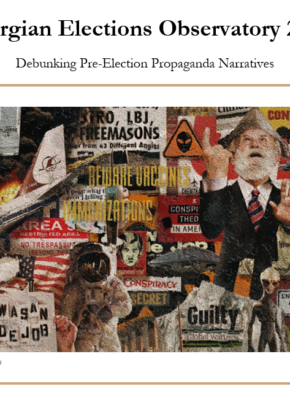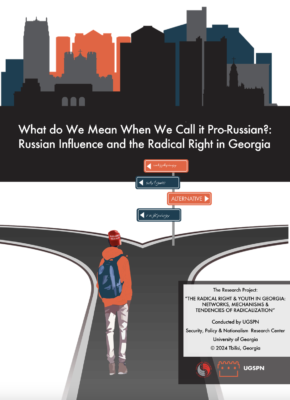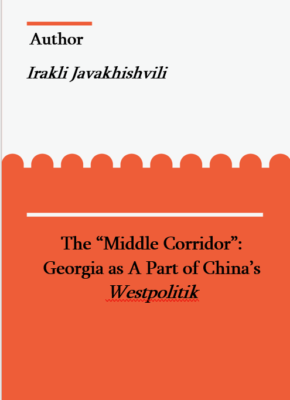
 The Georgian Elections Observatory 2024
The Georgian Elections Observatory 2024
The Georgian Elections Observatory (#GEObservatory24) is a short-term initiative focused on fact-checking pre-election narratives in the lead-up to the parliamentary elections on October 26. Unlike traditional fact-checking platforms, this project goes beyond verifying individual claims by analyzing entire narratives. It combines political analysis with fact-checking and media analysis to provide a comprehensive understanding of the pre-election discourse. The project is supported by the Fojo Swedish Media Institute in collaboration with the Investigative Media Lab (IML) and the UG Security, Policy, and Nationalism Research Center (UGSPN).
DISCLAIMER: The views expressed in these stories do not necessarily reflect those of the listed organizations.
 The Radical Right and Youth in Georgia: Networks, ...
The Radical Right and Youth in Georgia: Networks, ...
This research analyzes contemporary trends of radicalization within Georgia, with a specific focus on the
young adult demographic. Central to this study is the deconstruction of mobilization strategies employed by the radical right, understanding their appeal among young supporters, and illuminating the motivations behind their engagement with various radical-right discourses and groups. Additionally, the analysis unpacks the commonly attributed “pro-Russian” label associated with the Georgian far right and explain the nuances of this association.
 What do We Mean When We Call it ...
What do We Mean When We Call it ...
While the Georgian radical right has been narratively labeled as pro-Russian almost since its widespread resurgence in recent years, this designation is still in need of deconstruction. Association with Russia is a multidimensional process, varying from value association to practical links and financial networks. While all of it could be considered contributive to the destruction of liberal democracy, the nuanced understanding of “pro-Russianness” within Georgia’s radical right is salient at least for the following reasons: it assists in identifying the core of the challenge and focusing solution-oriented discussion on the matter; moreover, it reflects on the indirect ways of influencing the youth’s ideological inclinations and positions on democratic values; and finally, it contributes to tailoring policy suggestions to the nuances of the issue.
 The “Middle Corridor”: Georgia as A Part of ...
The “Middle Corridor”: Georgia as A Part of ...
Author: Irakli Javakhishvili
The project of the “Middle Corridor” which is a component of China’s “grand strategy”, is an important instrument of Beijing’s Westpolitik. Georgia, in turn, has a significant place in this project, due to its favorable geopolitical location.Through the regions of Central Asia and the South Caucasus, China will create various land connections with the European Union, which will also serve as an alternative to the Russian route. This will be the shortest way from China to Romania – the “Middle Corridor”, which will pass through Central Asia, the Caspian Sea, the South Caucasus, and the Black Sea. In the same sense, the Anaklia deep-water port can become an essential node in the functioning of the Corridor, especially if its construction is carried out by a Chinese company (it will have not only an economic, but also a significant political weight). However, regardless of the possible economic benefits that Georgia may receive from the “Middle Corridor” project, including through the Anaklia port, such a shift in foreign policy priorities of Tbilisi may cause irreparable damage to the country’s aspirations to join the EU and, in general, completely alienate it from the Western democratic world. At the same time, the benefits of the Middle Corridor project will be much greater for China (in proportionality) than for Georgia, particularly in the light of the fact that Beijing often shows dishonesty in bilateral agreements and partnerships, and often applies economic and political leverage to the contracting party.